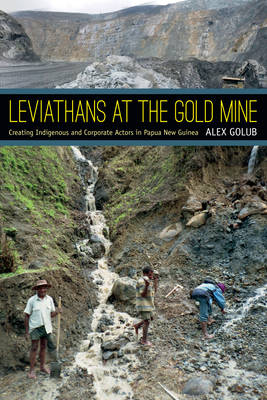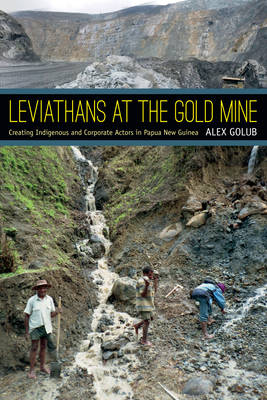
Bedankt voor het vertrouwen het afgelopen jaar! Om jou te bedanken bieden we GRATIS verzending (in België) aan op alles gedurende de hele maand januari.
- Afhalen na 1 uur in een winkel met voorraad
- In januari gratis thuislevering in België
- Ruim aanbod met 7 miljoen producten
Bedankt voor het vertrouwen het afgelopen jaar! Om jou te bedanken bieden we GRATIS verzending (in België) aan op alles gedurende de hele maand januari.
- Afhalen na 1 uur in een winkel met voorraad
- In januari gratis thuislevering in België
- Ruim aanbod met 7 miljoen producten
Zoeken
Leviathans at the Gold Mine
Creating Indigenous and Corporate Actors in Papua New Guinea
Alex Golub
Hardcover | Engels
€ 213,95
+ 427 punten
Uitvoering
Omschrijving
Leviathans at the Gold Mine is an ethnographic account of the relationship between the Ipili, an indigenous group in Papua New Guinea, and the large international gold mine operating on their land. It was not until 1939 that Australian territorial patrols reached the Ipili. By 1990, the third largest gold mine on the planet was operating in their valley. Alex Golub examines how "the mine" and "the Ipili" were brought into being in relation to one another, and how certain individuals were authorized to speak for the mine and others to speak for the Ipili. Considering the relative success of the Ipili in their negotiations with a multinational corporation, Golub argues that a unique conjuncture of personal relationships and political circumstances created a propitious moment during which the dynamic and fluid nature of Ipili culture could be used to full advantage. As that moment faded away, social problems in the valley increased. The Ipili now struggle with the extreme social dislocation brought about by the massive influx of migrants and money into their valley.
Specificaties
Betrokkenen
- Auteur(s):
- Uitgeverij:
Inhoud
- Aantal bladzijden:
- 264
- Taal:
- Engels
Eigenschappen
- Productcode (EAN):
- 9780822354949
- Verschijningsdatum:
- 10/03/2014
- Uitvoering:
- Hardcover
- Formaat:
- Genaaid
- Afmetingen:
- 160 mm x 231 mm
- Gewicht:
- 453 g

Alleen bij Standaard Boekhandel
+ 427 punten op je klantenkaart van Standaard Boekhandel
Beoordelingen
We publiceren alleen reviews die voldoen aan de voorwaarden voor reviews. Bekijk onze voorwaarden voor reviews.









